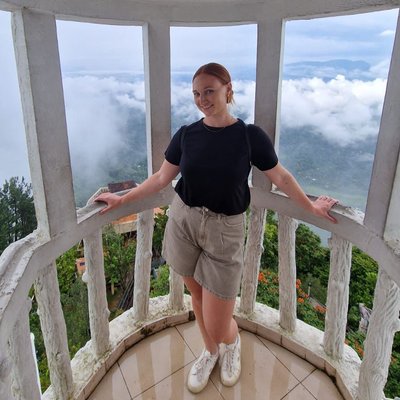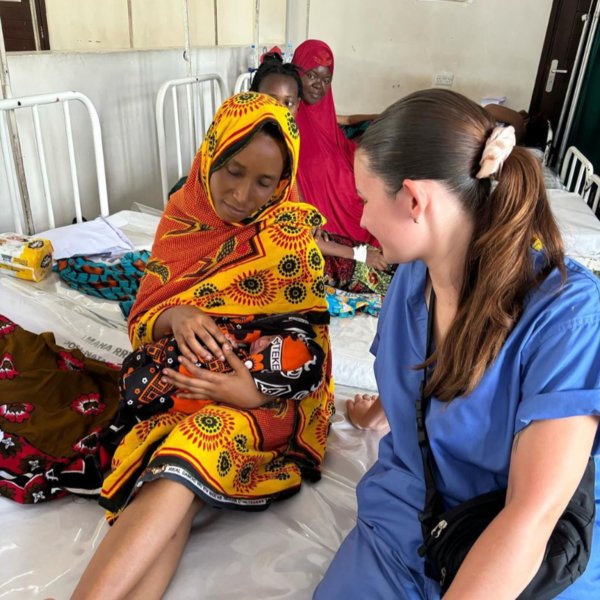Bangor University 2023
Joanna is about to start her 3rd year at Bangor University and recently spent two weeks in Dar es Salaam in Tanzania for her midwifery elective placement.
I liked the idea of traveling to a country where the healthcare system is vastly different to that at home, with minimal equipment, and seeing how the staff managed such a huge case load of pregnant and birthing women. 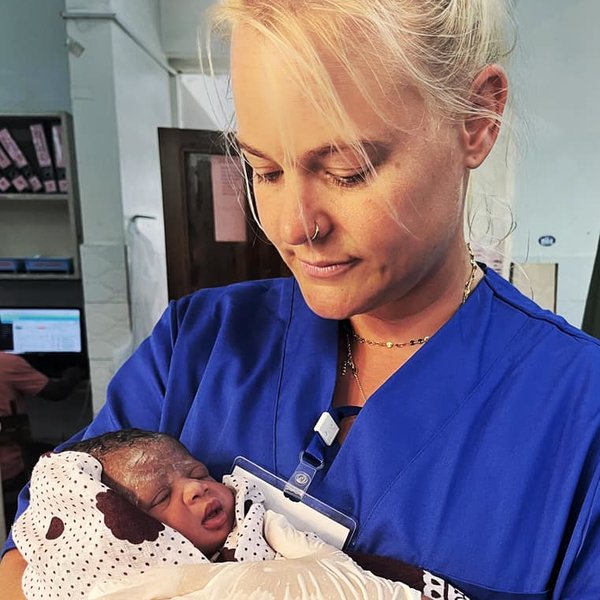
It was hard picking which destination to do to, but from reading through the description on the website, I felt that I would personally gain the most midwifery experience in Tanzania.
My first impression of the hospital in Dar es Salaam was much like I had anticipated. There was minimal equipment, for example, only one blood pressure machine for the whole of the antenatal ward and labour ward combined, no CTG machines, no adult thermometers, and re-usable tools (such as delivery packs).
The hospital was very busy in all departments. The labour ward had six beds all in the same room but with curtains around that could be drawn for some privacy.
The beds were basic, not at all like the ones in our hospital in the UK and there was no access to any analgesia including Entonox.
Culturally things were very different. The staff were very laid back, did not seem to be flustered by the volume of patients, and went about their business around the labouring women.
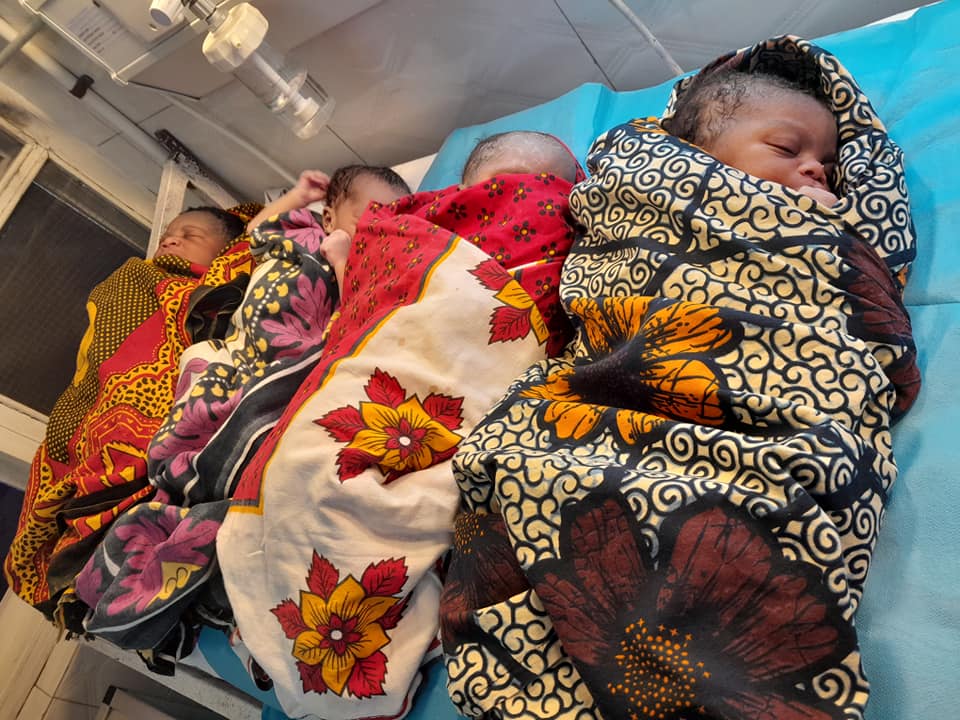 Women labour on their own, they are not allowed to have a birthing partner with them. As a student, I was able to provide emotional support to the labouring women (using the basic Swahili I had learned), which was greatly appreciated by the women who would unlikely be seen by a member of staff until birth was imminent.
Women labour on their own, they are not allowed to have a birthing partner with them. As a student, I was able to provide emotional support to the labouring women (using the basic Swahili I had learned), which was greatly appreciated by the women who would unlikely be seen by a member of staff until birth was imminent.
Under supervision, I was able to help with deliveries and even lead the delivery of a baby on my own with staff overseeing my practice at all times.
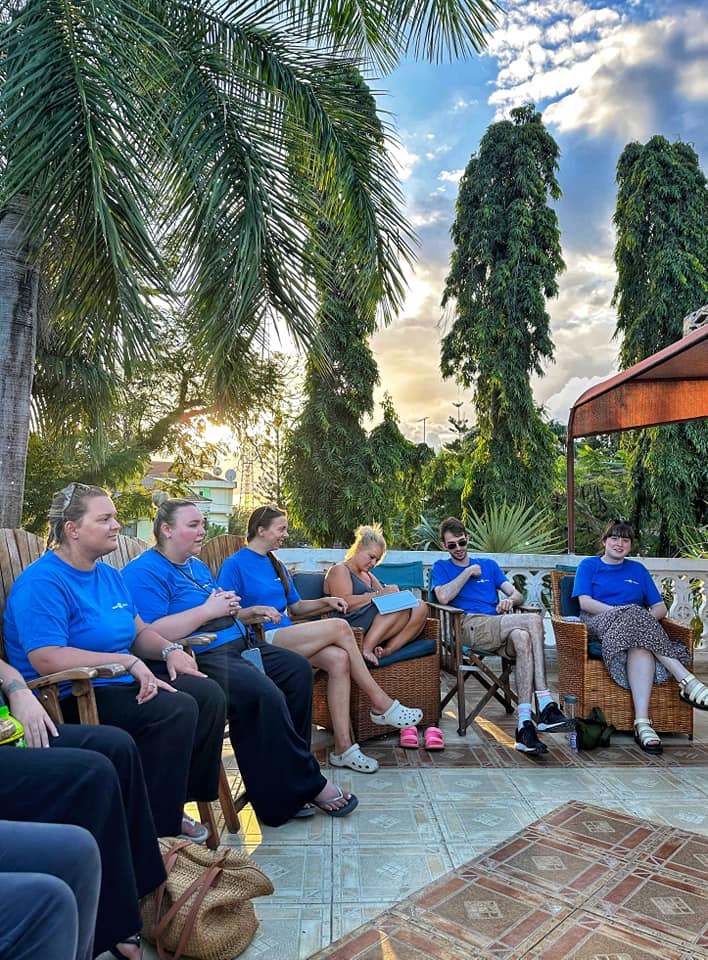 I implemented my own training to safely bring a baby into the world and provided aftercare including delivery of the placenta and administering oxytocin for uterine involution.
I implemented my own training to safely bring a baby into the world and provided aftercare including delivery of the placenta and administering oxytocin for uterine involution.
I also observed the delivery of a stillbirth with shoulder dystocia. This experience was very emotional but it was interesting to see how the staff delt with it and how the reactions of the mother were very different to those in the UK.
I helped carry out observations in the neonatal department, prepared drugs for administration, cleaned equipment, and beds, I took part in an HIV clinic.
Emergency situations are handled very differently in Tanzania. Women are not asked for consent before carrying out examinations or procedures and no analgesia is provided. Many women are catheterised during labour and this is left in until after the birth of the baby. This was very interesting to me as we try and avoid catheterisation unless necessary in the UK.
It was explained to me that all women who have some sort of risk in labour are catheterised, this is normal and routine practice in Tanzania. Babies do not receive skin-to-skin after birth in Tanzania. After the baby is born it is wrapped up in a 'kunga' (cloth provided by the mother) and put on a heated shelf. It remains here until the mother is able to move out of labour ward to collect it and go to the postnatal ward.
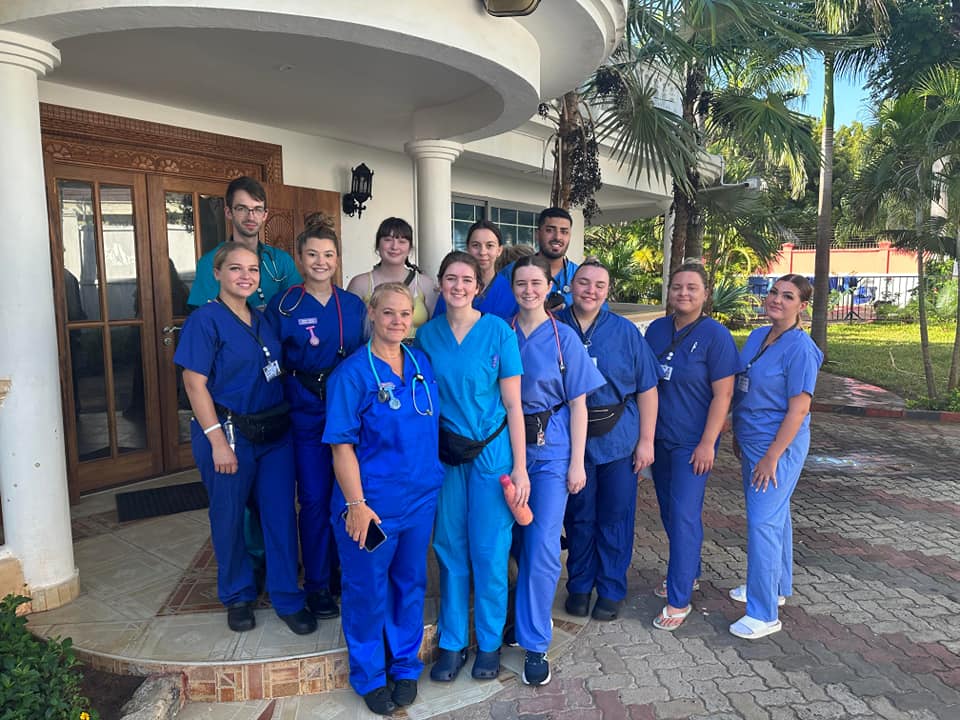 Babies are not fed until the mother has the strength to do so herself, so many babies were left four hours before receiving their first feed. I found this difficult, but I was there to observe a different healthcare system and different culture.
Babies are not fed until the mother has the strength to do so herself, so many babies were left four hours before receiving their first feed. I found this difficult, but I was there to observe a different healthcare system and different culture.
Outside of placement, we would go to cafes or to the shops and once a week we went to the local karaoke club which was fantastic!
 One weekend we went to Zanzibar and swam with dolphins, saw whales and tortoises and we island-hopped to beautiful beaches. We also chilled by the Work the World house pool, had dinners together at local restaurants, had our Swahili lessons twice a week, and played games with our housemates.
One weekend we went to Zanzibar and swam with dolphins, saw whales and tortoises and we island-hopped to beautiful beaches. We also chilled by the Work the World house pool, had dinners together at local restaurants, had our Swahili lessons twice a week, and played games with our housemates.
I would say to anyone considering going overseas to do it!
I had the most incredible experience ever with the perfect mix of work and play. It was such an amazing opportunity to see parts of the world, mix with locals, and experience culture in a totally different way.
I will never forget my experience and feel it has enriched my practice as a midwife in ways that can't be done in the UK.
